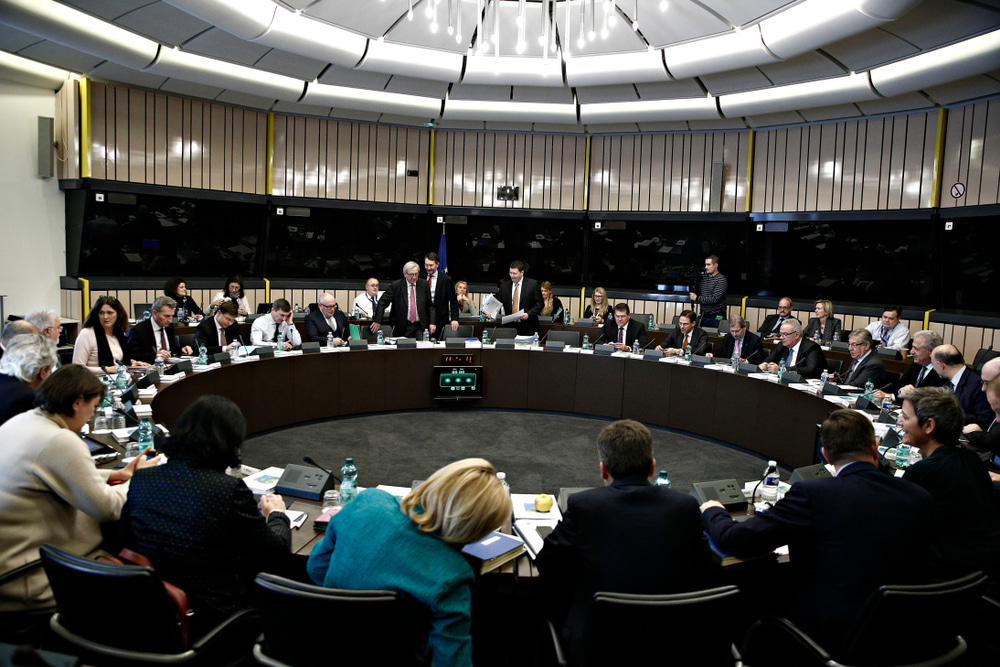Last week and particularly on 21 June, the Council’s agenda was dedicated to major employment and social policy matters.
Coordination of social security systems
The Council agreed its position on the amendment of Regulations 883/2004 and 987/2009 and will start negotiations with the European Parliament once the latter will be adopting its position.
The following matters are concerned:
- unemployment benefits
- long-term care benefits
- access to benefits for economically inactive persons
- family benefits
- applicable legislation for posted workers and persons working in two or more-member states.
In regard to the rules applicable to posted workers, the draft amending regulation introduces:
- a period of prior affiliation to the social security system (posting country) of at least 3 months
- a period between consecutive postings, of at least 2 months
- clear criteria for determining the location of the registered office or place of business of the employer of a posted worker
- the possibility for retroactive withdrawal or rectification of the Portable Document A1, in case of fraud or error
To consider in context, the Administrative Commission Recommendation No A1 concerning the issuance of Portable Documents A1, has entered into force on 18 June 2018, and the ECJ’s ruling in Altun and Other (C-359/16), a clear assessment of the concept of prohibition of fraud and abuse of right.
Lastly, pending the ECJ’s ruling in Alpenrind and Others (C-527/16), the “non-replacement” condition does not preclude an employer A, from posting a worker, to carry out work that was previously carried out by a worker posted by another employer B, to the same recipient of services C (unless such a replacement would constitute fraud or abuse of right).
Posting of Workers Directive
With a qualified majority (22 Member States represent 76.08% of the population) , the Council adopted the revision of the Posting of Workers Directive.
The following main amendments are brought to the Directive 96/71/EC:
- posted and local workers will be submitted to the same rules on remuneration
- clear rules on allowances (codification of the ECJ’s case-law)
- a worker can be posted for a period of 12 months, with a 6 months extension - after this period, the posted worker will be subject to nearly all aspects of the labour law of the host country (obs. social security coordination rules are not affected; the posting directive and the coordination regulations are hermetic instruments)
- the number of potential collective agreements is increased
- temporary work agencies shall guarantee to posted workers the same terms and conditions which apply to temporary workers hired in the member state where the work is carried out
- cooperation on fraud and abuse in the context of posting is enhanced
Directive on a proportionality test before adoption of new regulation of professions
The Council adopted a directive that will require EU member states to carry out a proportionality test, before establishing new requirements for professions.
The directive aims to ensure that when regulating professions, member states will have to assess whether new or revised rules are justified by public interest objectives. Such restrictive measures must be proportionate and do not unduly hinder access to professional activities or create unjustified burdens in the internal market.
Transparent and predictable working conditions
The Council agreed its position on the directive on transparent and predictable working conditions and will start negotiations with the European Parliament once the latter will be adopting its position.
The draft directive aims to respond to issues generated by the growing flexibilisation of the labour market and, in particular the increase in the number of 'non-standard' forms of employment, such as temporary employment, part-time and on call work, zero hours contracts, on demand and multi-party employment.
The draft directive includes:
- revised obligations to inform workers of the essential aspects of their work, in a written form and in a timely manner
- limitation to 6 months of the duration of the probationary period at the beginning of the job
- right to take up another job with a different employer in parallel
- right to know reasonably in advance when work will take place
- right to ask for a more secure job and receive a written reply from the employer
- right to receive mandatory training cost-free
Leave and flexible work for parents and carers
The Council agreed its position on the directive on work-life balance for parents and carers and will start negotiations with the European Parliament once the latter will be adopting its position.
The directive aims to:
- update minimum standards on paternity leave: fathers or second parents will be allowed to take at least 10 working days of leave around the time of the birth of the child, paid at a level defined by the member state concerned.
- update minimum standard on parental leave, keeping the existing individual right of 4 months but with 2 non-transferable months, with at least 1.5 months to be paid at a level set by the member state concerned.
- introduce an individual right to carers' leave, previously not recognised at EU level.
- extend the right to request flexible working arrangements for parents, until the child is at least 8 years old, as well as for carers.







Please sign in or register for FREE
If you are a registered user on The Forum for Expatriate Management, please sign in